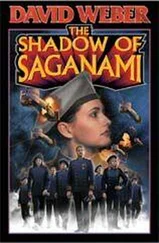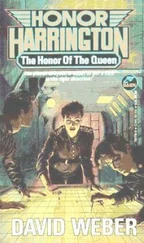David Weber - The Excalibur Alternative
Здесь есть возможность читать онлайн «David Weber - The Excalibur Alternative» весь текст электронной книги совершенно бесплатно (целиком полную версию без сокращений). В некоторых случаях можно слушать аудио, скачать через торрент в формате fb2 и присутствует краткое содержание. ISBN: , Издательство: Baen Publishing Enterprises, Жанр: Фантастика и фэнтези, на английском языке. Описание произведения, (предисловие) а так же отзывы посетителей доступны на портале библиотеки ЛибКат.
- Название:The Excalibur Alternative
- Автор:
- Издательство:Baen Publishing Enterprises
- Жанр:
- Год:неизвестен
- ISBN:0-671-31860-8
- Рейтинг книги:4 / 5. Голосов: 1
-
Избранное:Добавить в избранное
- Отзывы:
-
Ваша оценка:
- 80
- 1
- 2
- 3
- 4
- 5
The Excalibur Alternative: краткое содержание, описание и аннотация
Предлагаем к чтению аннотацию, описание, краткое содержание или предисловие (зависит от того, что написал сам автор книги «The Excalibur Alternative»). Если вы не нашли необходимую информацию о книге — напишите в комментариях, мы постараемся отыскать её.
The Excalibur Alternative — читать онлайн бесплатно полную книгу (весь текст) целиком
Ниже представлен текст книги, разбитый по страницам. Система сохранения места последней прочитанной страницы, позволяет с удобством читать онлайн бесплатно книгу «The Excalibur Alternative», без необходимости каждый раз заново искать на чём Вы остановились. Поставьте закладку, и сможете в любой момент перейти на страницу, на которой закончили чтение.
Интервал:
Закладка:
And they were a community, as well as an army. In many ways, Sir George had often thought, they were fortunate that there were so few gently born among them. He himself was the only true nobleman, and even he was the grandson of a common man-at-arms. Aside from himself and Maynton, only Matilda and Sir Anthony Fitzhugh could claim any real high-born connection. After a great deal of soul-searching and discussions with Maynton, Fitzhugh, and Sir Bryan Stanhope—and, especially, with Matilda—he had decided to bestow the accolade of knighthood upon men who'd earned it in battle. He was careful not to abuse the practice, and his men knew it. That made the knighthoods he'd awarded even more valuable to them, and it had also given him a solid core of exactly one dozen knights.
The fact that all but three of them were men of common birth had not only told all of his troopers that any one of them could aspire to the highest rank still available to them but had also helped to bind the entire community even more tightly together. And not just among its male members. Just as three quarters of his knights had been born of common blood, so had the vast majority of the company's women, which meant that, especially with Matilda and Margaret Stanhope to lead the way, they had decided to overlook the dubious origins of many of the unwed camp followers who'd joined them in their involuntary exile. Most of those camp followers, though by no means all, had acquired husbands quite speedily. A few had chosen not to, and Father Timothy had agreed, under the circumstances, not to inveigh against them for continuing to ply their old avocation. There were a great many more men than women, and the one thing most likely to provoke trouble among them was that imbalance in numbers. No doubt Father Timothy would have preferred for all of the women to be respectfully wedded wives, but he, too, had been a soldier in his time. He understood the temper of men who still were, and he was able to appreciate the need to adapt to the conditions in which they found themselves forced to live.
As a result, not even those women who continued to follow their original trade were ostracized as they might have been, and a tightly knit cluster of families formed the core of the English community. The steadily growing number of children (both legitimate and bastard) helped cement that sense of community even further, and for all the bitterness with which Sir George chafed against his servitude, even he had to admit the awe he felt that not a single one of those children had perished in infancy. That was undoubtedly the most treasured of the "luxuries" their masters had made available to them. The strangest , however (though it was hard to pick the single most strange) was the fact that so few of those children's mothers remembered their births. It had caused some consternation and even terror and talk of "changelings" at first, but as time passed, the women had adjusted to the fact that their babies were almost always born during one of their sleep periods. The Physician had explained the process, pointing out that it only made sense to get such time consuming worries as pregnancies out of the way when they were asleep in stasis anyway. After an initial period of extreme uneasiness, most of the women had come to agree. Led in almost every case, Sir George had been amused (but not surprised) to note, by the women who had birthed the most babies the "old-fashioned" way.
He smiled even now, at the memory, but his attention was on his wife's question. One of the real reasons he'd initially requested freedom from the ship for his people had been amply confirmed over the years. He was absolutely positive now that anything which was said aboard the ship would be overheard and reported by Computer or one of their master's clever mechanical spies, and while he was perfectly well aware that those same spies could eavesdrop upon them outside the ship, as well—Computer could hear and relay his orders even through the thunderous clangor of battle and even when he spoke in almost normal tones, after all—he hoped it was at least a bit harder. And he rather suspected that even the most clever of mechanisms would find it more difficult to keep track of several hundred individual conversations out in the open against the background noise of wind and water than to listen for a single command voice even amidst the bedlam of war. The fact that he or one of his trusted advisers had managed to find at least one spot in each encampment where Computer would not, or could not, respond to them also suggested that it was possible for some freak of terrain or atmosphere to produce blind spots in Computer's own coverage. Sir George had taken careful note of the fact that most of those "blind spots" seemed to occur in dips or hollows, depressions which allowed the speaker to put a bank of solid earth or stone between himself and areas where he knew Computer could hear him.
The ingrained habits of extreme caution had become a matter of simple reflex to him during the years of his servitude, and he had no intention of risking any more than he must upon the unproven assumption that there was anywhere at all that Computer couldn't hear him. At the same time, however, he knew there was no place aboard ship where he couldn't be overheard, which meant that the only time he felt even remotely safe discussing dangerous matters was during their periods of encampment.
Although even then, he reflected, the only person with whom he truly discussed them was Matilda.
"Yes, I'm certain," he said at last, meeting her blue eyes as he answered her question. God, she's beautiful , he thought with a familiar sense of wonder and awe.
"I don't think he realizes he revealed so much," he went on after a moment, raising a wine goblet to hide the movement of his lips and speaking very quietly, "but I'm certain of it. More certain than I like."
"But surely there's no longer any doubt that we truly are as valuable to his guild as he's suggested," Matilda pointed out. "You've served him far better than even he could ever have imagined you might, with wit and counsel as much as with weapons. He himself has admitted as much to you, and, like you, I very much doubt that he was ever the sort to waste unmeant praise upon someone he considers so completely his inferior out of a sense of courtesy. Whatever else his guild may be, surely it would not lightly discard a tool whose worth it holds so high."
"Um." Sir George set the goblet aside, then stretched in an ostentatious yawn. He smiled at his wife and moved to lay his head in her lap, smiling up at her as she tickled the tip of his nose with a stalk of local grass. To the casual eye, they were but two people—people miraculously young and comely—in love, but his eyes were serious as he gazed up at her.
"We are valuable," he agreed, "but we're also the very thing you just called us: a tool. You've spent more time with him than almost any of our other people, love, because of the times he's `invited' both of us to dinner or the like. But not even you have spent anything approaching the number of hours with him that I have. I wish I hadn't spent them, but I have. And in the spending, I've learned that our worst fears of how he views us have actually fallen short of the mark. I doubt that he could be considered `cruel' by his own standards, but we fall outside those standards. We may be valuable for what we've achieved for him and his guild, but we aren't people to him. We have absolutely no value to him except as tools. He sees us as we might see a horse, or a cow: as things to be used for his purposes and discarded—or slaughtered—if they're no longer useful. Certainly he regards me, for all his praise when I accomplish his goals for him, with less affection than I hold for Satan!"
Читать дальшеИнтервал:
Закладка:
Похожие книги на «The Excalibur Alternative»
Представляем Вашему вниманию похожие книги на «The Excalibur Alternative» списком для выбора. Мы отобрали схожую по названию и смыслу литературу в надежде предоставить читателям больше вариантов отыскать новые, интересные, ещё непрочитанные произведения.
Обсуждение, отзывы о книге «The Excalibur Alternative» и просто собственные мнения читателей. Оставьте ваши комментарии, напишите, что Вы думаете о произведении, его смысле или главных героях. Укажите что конкретно понравилось, а что нет, и почему Вы так считаете.











